The exhibition is now closed, but you can find out more by scrolling down.
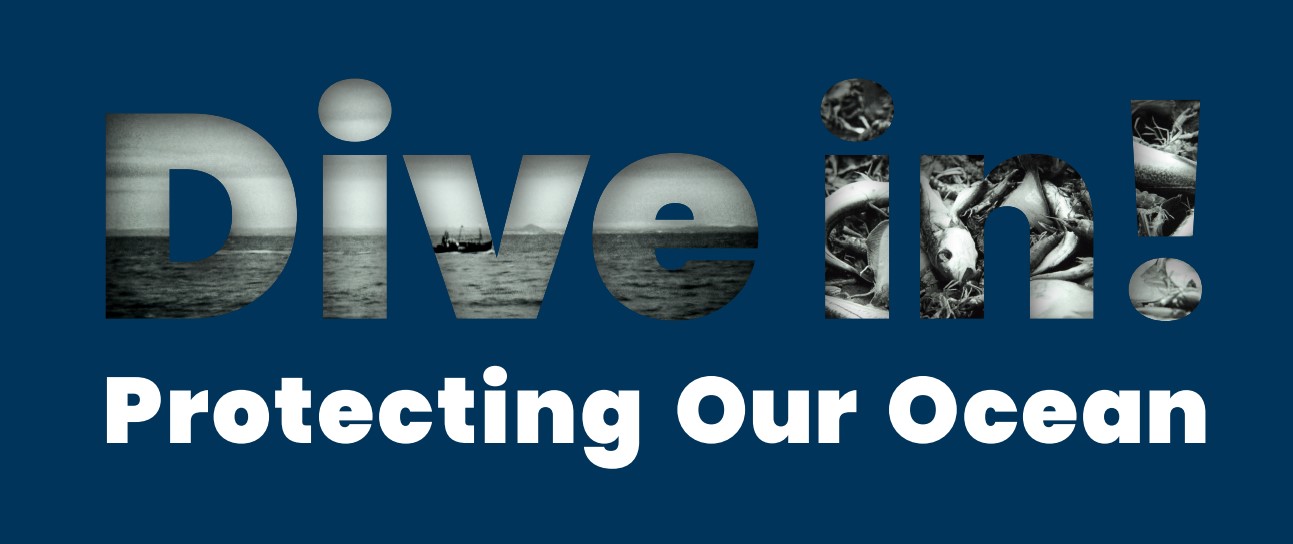
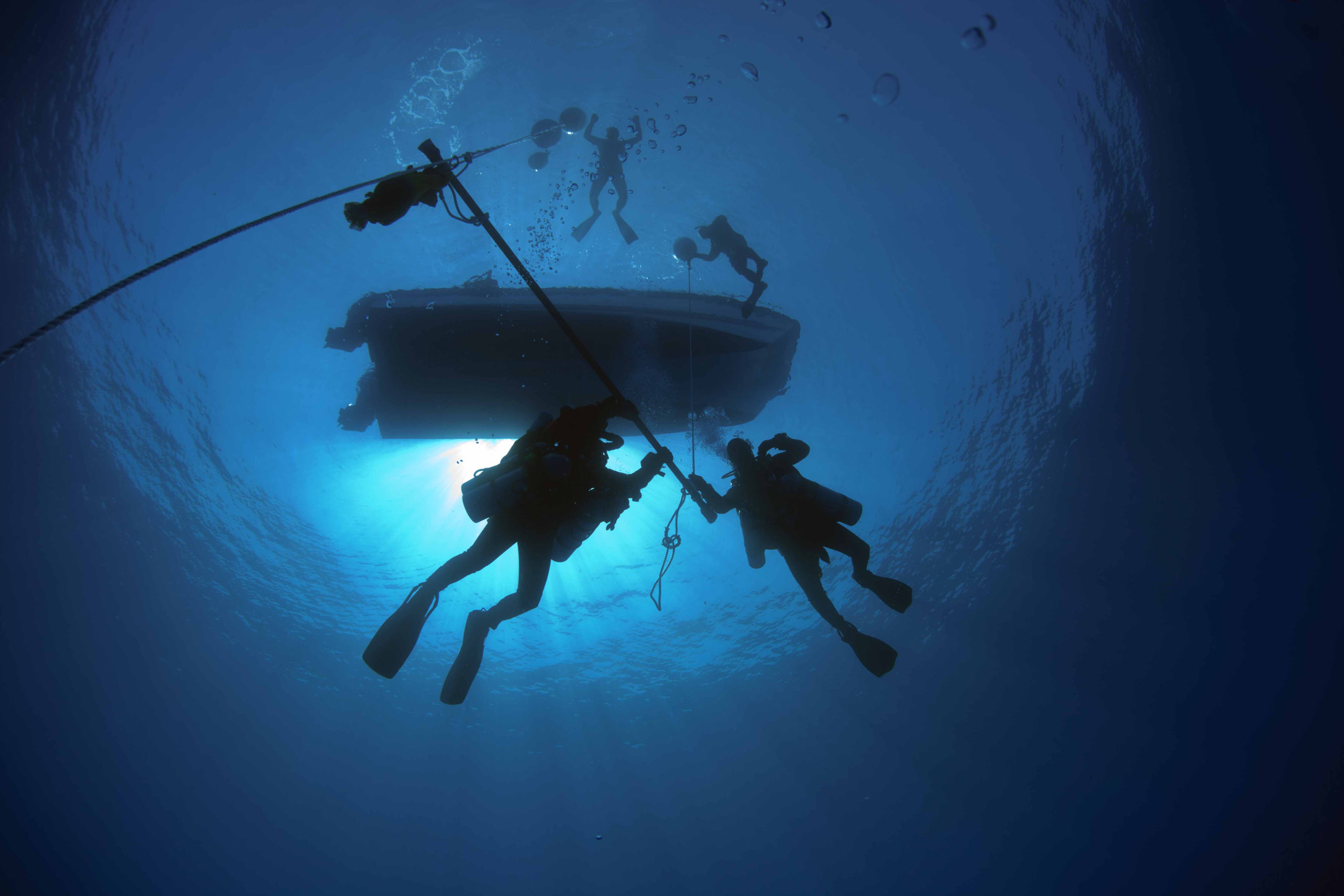
Dive In! explores the wonders of the ocean, the challenges it faces, and the actions that you can take to help save it.
Life depends on the ocean.
It provides food, protection and a place to live.
It supports our wellbeing and cultural heritage.
It is the world’s largest store of carbon, produces the oxygen we breathe and regulates our climate.
As a result of human actions, our ocean is under threat.
To protect the ocean, our relationship with the natural world needs to change.
Dive In to explore some of the threats our ocean faces, then discover what you can do to help.
Image courtesy of the NOAA Office of Ocean Exploration and Research, Windows to the Deep 2018.
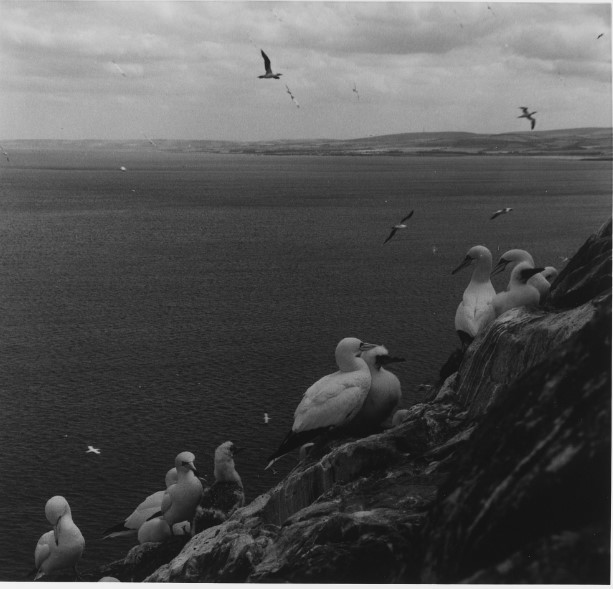
Land
Our decisions on land and in the air matter for the ocean. We can all act now to protect our planet’s precious resources. As individuals and as a global community, we can lead more sustainable lives and make our voices heard.
© Sean Dooley, all rights reserved.
Courtesy of the University of St Andrews Libraries and Museums , ID: MFM-P-3-5
The musical message of Climate and Heritage by Chemical featuring Abella focuses on the impacts of climate change on coastal cultural heritage. Her work focuses on the threats to coastal communities in her native Tanzania, but the same problems are found across the world. The video is part of a research project by the University of Dar es Salaam and the University of St Andrews, funded by the British Council and the Scottish Government Global Challenges Research Fund.
Chemical has made her voice heard about the impacts of the ocean on land. How will you be heard?
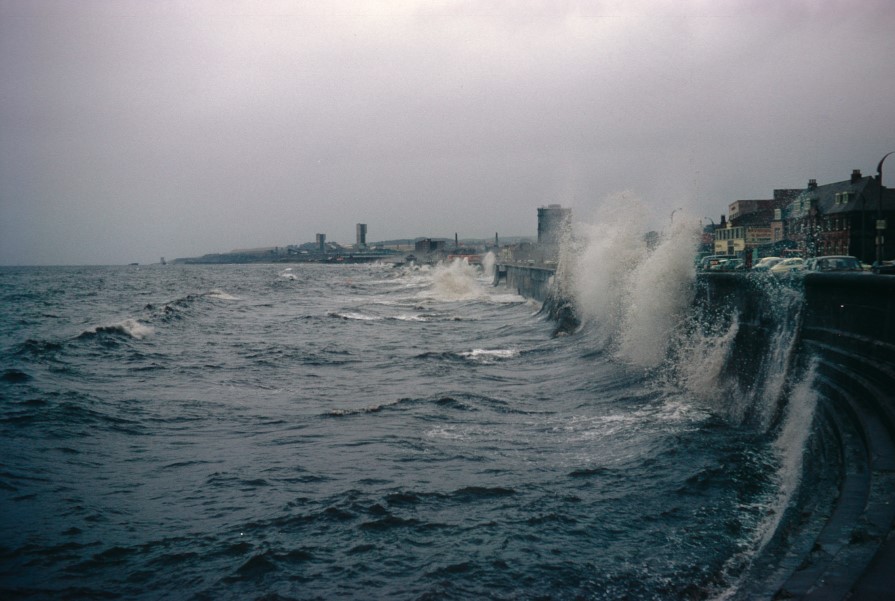
The Coast
Our coastlines are undergoing rapid change because of the climate emergency. Communities in the UK and globally are already feeling the impact of rising sea levels and extreme weather.
Greener energy sources are only part of the solution. By being more aware of the power that we use in our homes, we can do our bit to protect our planet. It all starts here at the coast.
© Hamish Brown, all rights reserved. Courtesy of the University of St Andrews Libraries and Museums , ID: HMB-2000

Ceilia, a model of a Harbour seal.
Seals and other marine mammals are already facing the effects of climate change. The melting of ice in polar waters affects marine mammals’ habitat for breeding and hunting.
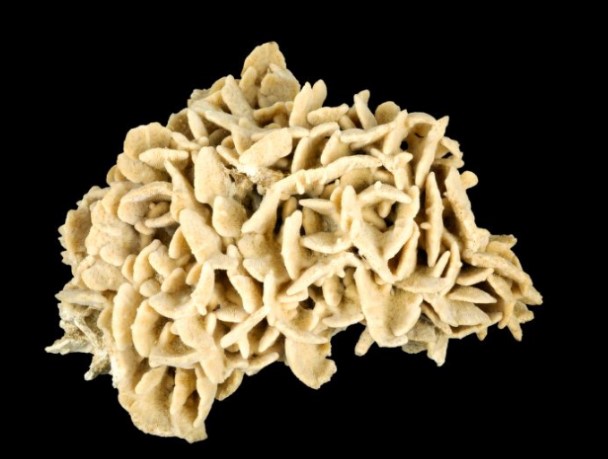
Siderastrea, a type of coral.
Tropical reefs cover around 2% of the ocean floor but are home to about 25% of all marine species. They also underpin the livelihoods of some 500 million people in the fishing and tourism industries.
Global warming from the burning of fossil fuels is raising ocean temperatures. As a result, coral can become stressed just like a human. This causes coral bleaching and the coral may die. Rising levels of carbon dioxide in the atmosphere have also made the ocean more acidic. This hinders the growth of coral reefs.
Photo shows BPM208. © University of St Andrews Libraries and Museums.
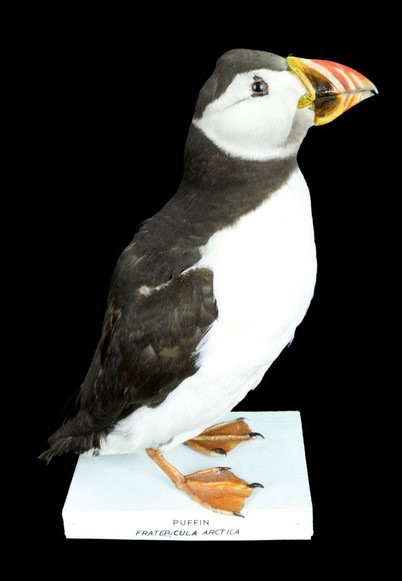
Puffin
Seabirds are sensitive to changes below the ocean surface because they are one of the creatures at the top of the marine food web.
Many seabirds rely on small fish to feed their young. Warming coastal waters mean that these fish are migrating away from seabird breeding sites or are not available at the right time for chicks. Without enough food, young birds perish.
Photo shows BPM1853. © University of St Andrews Libraries and Museums.
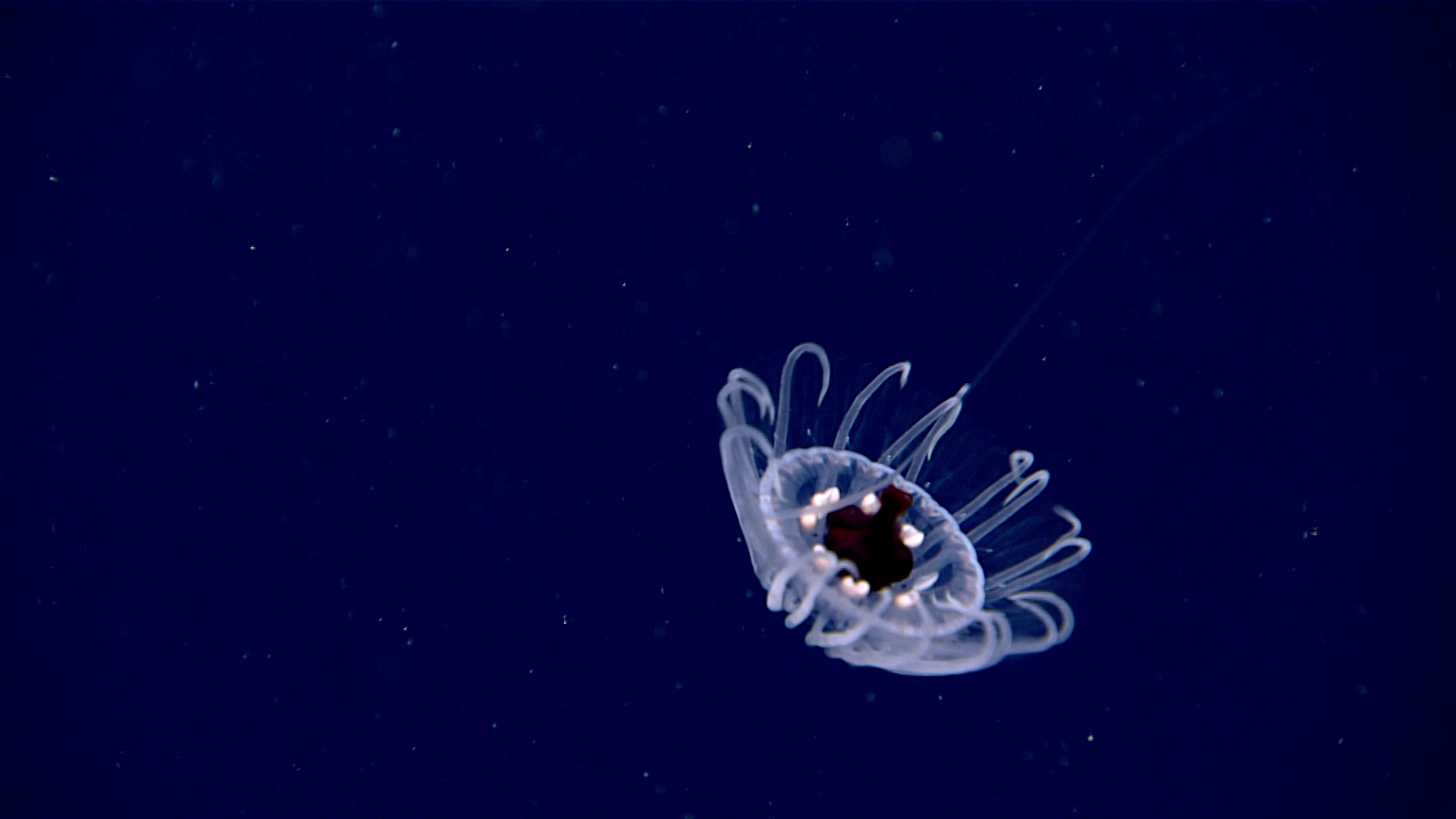
The Shallows
Many of the ocean’s most recognisable creatures live here as part of an interconnected underwater world. Communities around the globe depend on these marine food chains. But all of these are under threat.
Some fishing practices leave fish stocks depleted, with livelihoods in small fishing communities across the globe under mounting pressure. We need seafood for food and jobs. Sustainable fishing practices are possible and we can all help make that a reality.
Making choices about whether we should or shouldn’t eat seafood can sometimes seem confusing. The first step is to find out more about seafood sustainability.
Image courtesy of the NOAA Office of Ocean Exploration and Research, Windows to the Deep 2018.
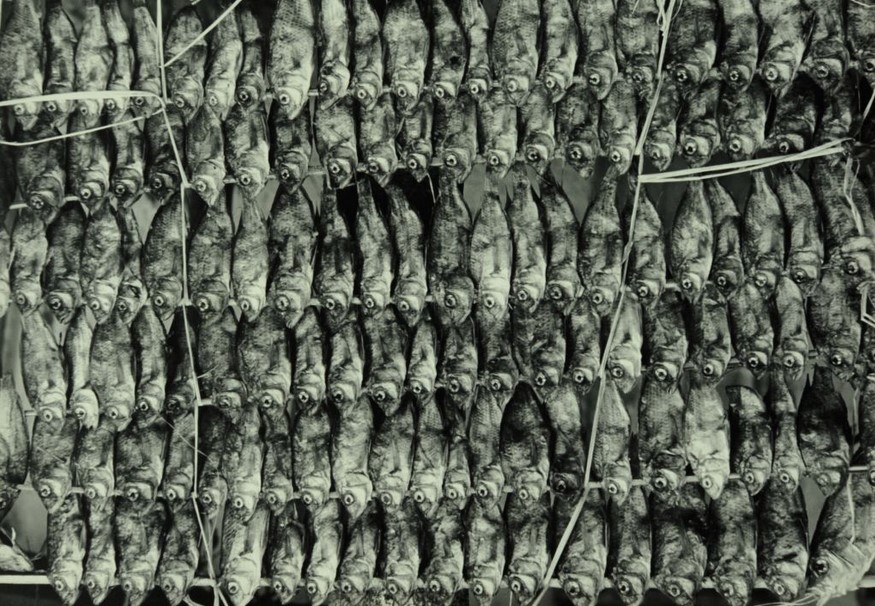
Overfishing affects the entire marine food web, but the global demand for fish continues to increase. Fish are often caught faster than they can reproduce, leading to a decline in fish stocks.
Many fishers are committed to sustainable practices to protect marine food chains and sustain their livelihoods.
We can help by making the right choices about if and how to consume sustainable seafood.
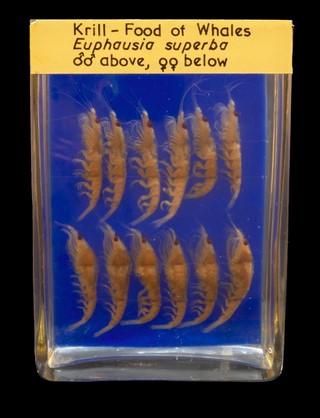
Krill
Some commercial fishing practices, like trawling, can damage marine habitats and food chains.
Commercial fisheries harvest Krill as food for fish, livestock and pets. This reduces Krill stocks which are also a vital food source for some creatures in the wild, such as penguins, whales and fish.
Photo shows BPM1075. © University of St Andrews Libraries and Museums.
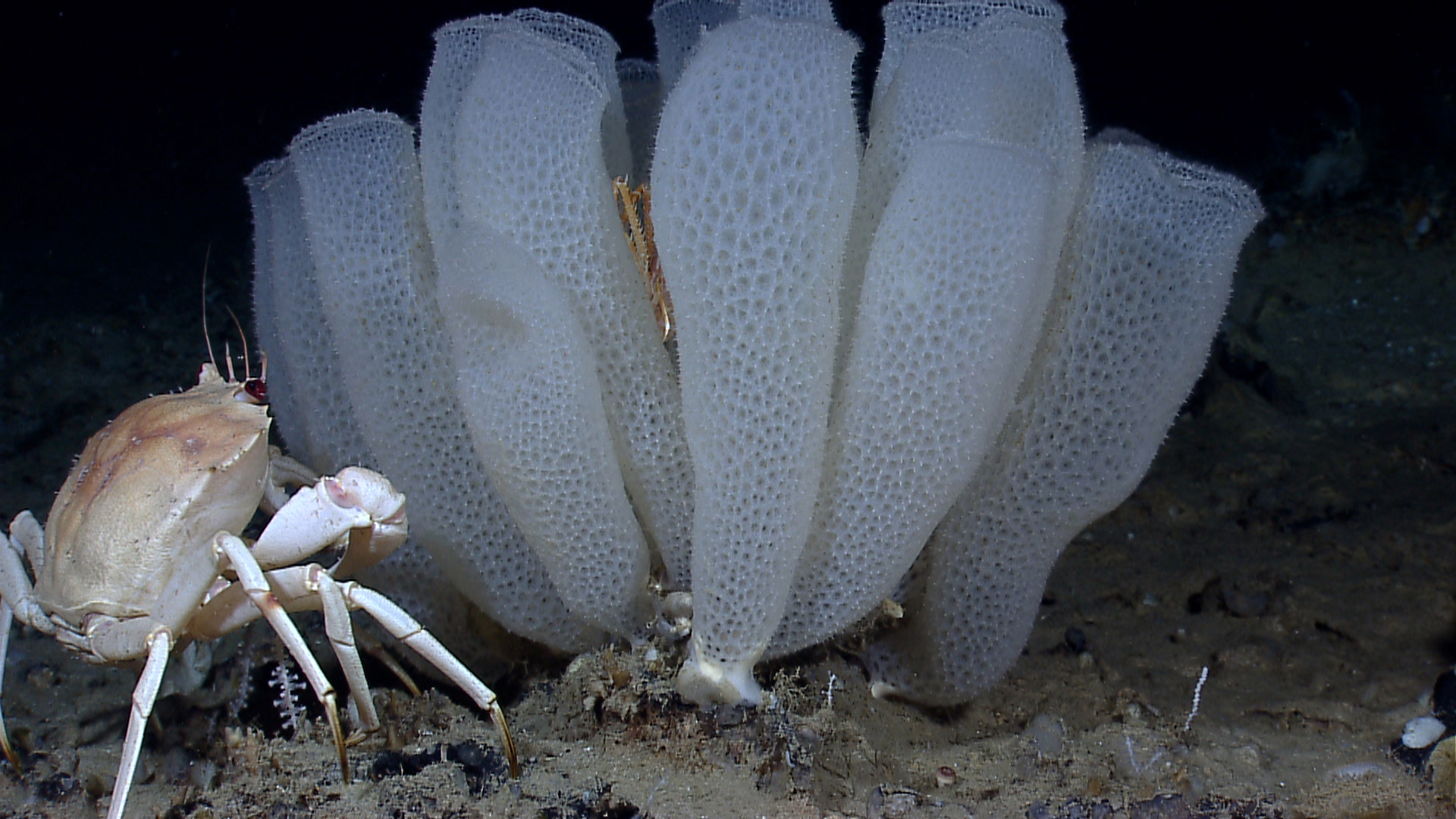
The Middle Zone
You have reached the middle of the ocean, where whale song and the mating calls of fish make up the ocean’s natural soundscape.
Rising ocean temperatures mean that marine animals and humans are venturing into areas of the ocean that they couldn’t before, and activity such as shipping and oil and gas exploration are disturbing the sounds of the ocean’s middle zone.
The whales, dolphins and other marine life who have always lived in these areas rely on sound for navigation and communication. As a result it is becoming more difficult for them to interact, eat, breed and survive here.
Image courtesy of the NOAA Office of Ocean Exploration and Research, Gulf of Mexico Expedition 2012
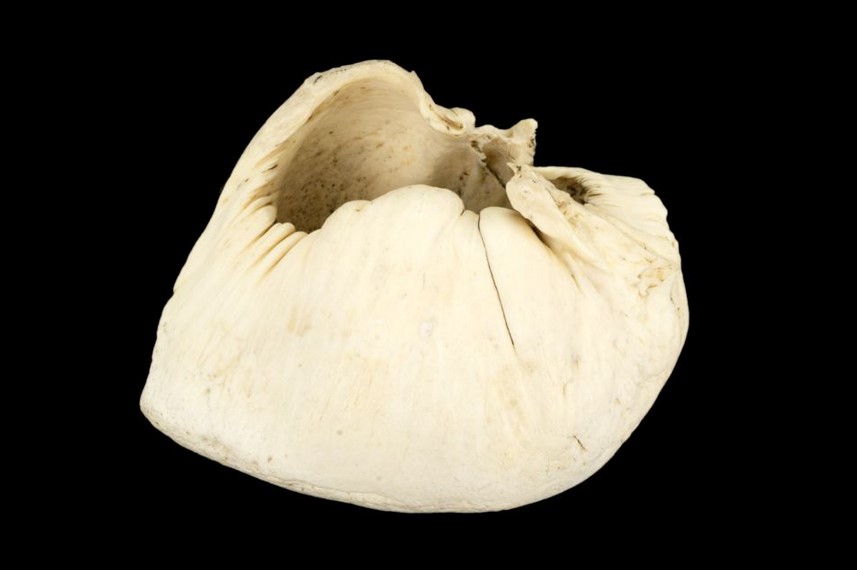
Bowhead whales can live for over 200 years. They are specially adapted to live under ice, communicating and navigating using sound.
Climate change is causing polar ice to melt, encouraging ships and other whale species into Arctic waters. These noisy newcomers threaten to drown the Bowheads out.
On the surface, the noise around climate change can sometimes seem just as overwhelming for humans. One of the most powerful actions that any of us can do is to talk more about climate change and the ocean.
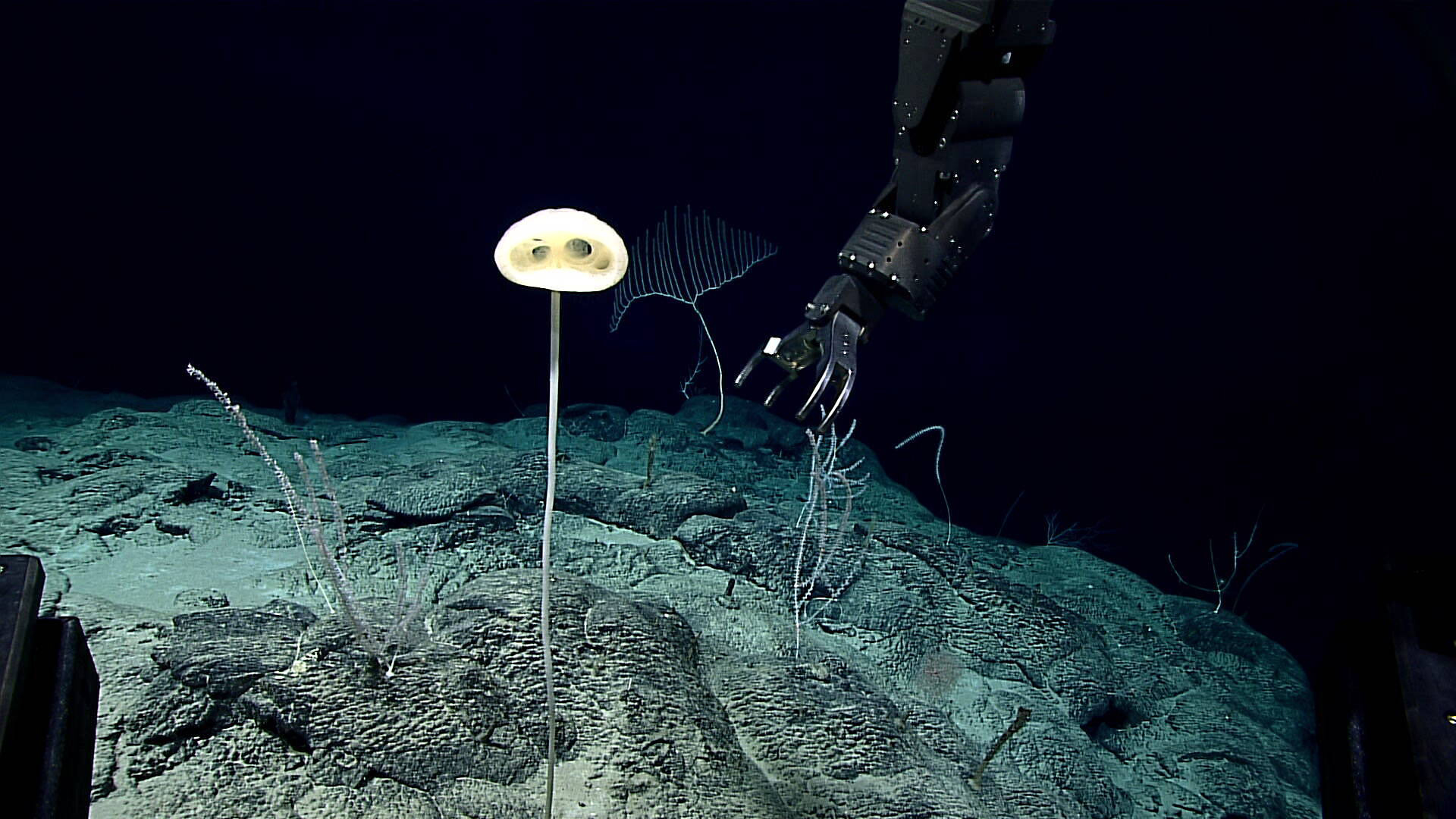
The Deep
This is the deepest, darkest, most mysterious part of the ocean. The crushing pressure makes it impossible for humans to survive here. Yet countless marine species call it home.
Our electronic devices – from mobile phones to laptops and electric cars – contain natural minerals that are in limited supply. As sources on land run out, governments and companies are turning their attention to the untapped potential of the ocean. Deep sea mining is destructive to the seabed and its marine life.
Image courtesy of the NOAA Office of Ocean Exploration and Research, 2016 Deepwater Exploration of the Marianas.

The ocean floor has vast deposits of minerals that contain sought-after metals, like these ones.


© University of St Andrews Libraries and Museums.
Metals are in high demand for the production of electronic devices and green technology, including electric cars and some renewable energy devices. Governments and mining companies have started to investigate deep sea mining as a way to reduce carbon emissions and tackle the climate crisis.




The deep sea is home to thousands of unique and diverse marine species, like those in the photos above, that are specially adapted to live in the extreme conditions at the bottom of the ocean.
Much of the deep is still to be explored and new species discovered.
Deep sea mining for precious minerals could place the ocean and its marine life under threat – before we even fully understand it.
“E-waste is the planet’s fastest growing waste stream, much of which could be reused, repaired or recycled. Responsible consumption and disposal of electronics can reduce demand for new mining while creating business opportunities in what is known as the ‘circular economy’.”
Dr Chris leakey, marine alliance for science and technology for scotland
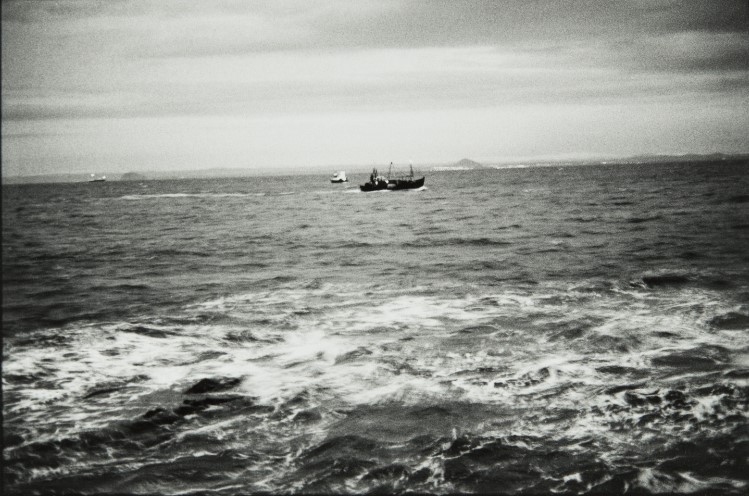
It’s not too late to make a difference.
Our voices can drive this change. We can take action in our everyday lives, and place pressure on governments and businesses to act now.
Not sure where to start? You can find personalised ways to protect our ocean by visiting the Get involved page.
Already know how you’re going to make a difference? Visit the Make a pledge page to take the first step.
© Sean Dooley, all rights reserved. Courtesy of the University of St Andrews Libraries and Museums, ID: 2009-3-1
Dive In is supported by Museums Galleries Scotland and the Calouste Gulbenkian Foundation UK. It has been developed in collaboration with the Scottish Oceans Institute and the People Ocean Planet initiative from the Marine Alliance for Science and Technology for Scotland, with the help of an advisory panel.
Dive In is part of the University of St Andrews’ response to the UN climate change conference COP26.